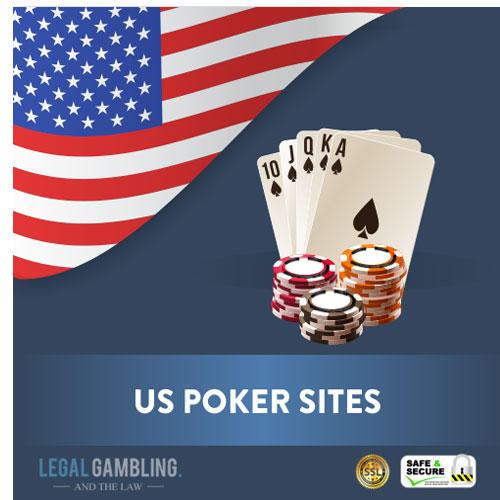Us Online Poker Laws
As sports betting continues to expand it’s footprint across the United States with legal, online sports betting opportunities, as does the world of legal, online casino and iGaming. Here, we’ll look at a rather rudimentary guide on how to play online poker and win.
Online gambling and poker legislation in the U.S. Is changing on a state by state basis. New Jersey, for example, legalized online gambling and poker in November 2013, offering some hope to U.S. Players in other states for online casinos. Read below for a breakdown of other states to see the latest law updates. There is no federal law that prohibits players from playing poker for real money online in the US. Many people believe that the Wire Act of 1961 or the Unlawful Internet Gaming Enforcement Act of 2006 (UIGEA) made it illegal to play poker online in the US, but that is inaccurate. State law specifically prohibits the operation of an online gambling site, but not necessarily playing at one. Indiana Poker: State takes aggressive approach to illegal gambling. Players appear to be targets along with operators. Indiana has a law outlawing the operation (but not the use) of online casinos. Legal Online Poker For USA Players No portion of the online gambling industry in 2021 has taken as much heat, speculation, and scrutiny as that of legal online poker. Entire forums, user groups, and even careers have been made through online poker.
How to play iGaming online poker: Starting out
If you’re just getting your feet wet playing poker online, you’re not alone. Many are dabbling in electronic casino games for the first time.
Texas holdem is widely available online, as well as games like Omaha. The latter doesn’t have nearly the mass appeal or availability, however, so we’ll focus mostly on online Texas holdem.

How to play online poker: Winning
Before we proceed, let’s just clear up a few basics. There are four suits and two colors in a standard 52-card deck. We have two red suits – diamonds and hearts – and two black suits – clubs and spades. Face cards are jacks (J), queens (Q) and kings (K). Aces (A) can be used either as a high or low card, similarly to blackjack.
Play legal, real money casino games online!
Play online in NJ, PA and WV, including poker, roulette and slots at BetMGM. New customer offer: Receive $25 in free house money upon registration and 100 percent deposit match up to $1,000! Terms and conditions apply. Register and start playing online casino games now!
Unlike blackjack, you’re not only playing against the dealer, but also the others at the table. In Texas holdem, you will get five ‘community’ cards dealt, and two ‘hole’ cards. Your two hole cards are not shown to anyone else. You must use at least one of your hole cards to make the best possible hand against everyone else at the table.
There will be a round of betting based upon everyone’s hole cards. The order is determined by the ‘button’, which is a round marker rotating around the table each hand. This signifies who is the ‘dealer’. The next two positions are the ‘small blind’ and ‘big blind’ spots. There is a pre-determined amount required to play the hand.
The big blind pays the entire amount, the small blind plays half, and has the option of matching the big blind to remain in the hand. After the big blind, each player around the table has the option of either ‘calling’, or betting the amount of the big blind, raising or folding. The betting goes all around the table until every player matches the highest bet made in a particular round.
After the hole cards are bet upon, the ‘flop’ is dealt. These are the first three community cards. Another round of betting ensues. Then, a fourth card, or ‘Fourth Street’ or ‘The Turn’, is dealt, and another round of betting, etc. Lastly, a fifth card, or ‘Fifth Street’ or ‘The River’, is dealt, and the final bets are made before a winning hand is determined.
How to play online blackjack: Strategies
Online Poker In Us
There are plenty of different strategies for winning at online poker, but the best advice is to be patient. It might seem rather boring to continually fold hands, and Texas holdem can be a grind at times, but impatience is rarely rewarded, and it’s a good idea to wait for ‘Top 10’ hands. Eventually, you’ll learn about suited connectors (cards of the same suit in numerical succession), or just suited cards in general, which can be good starting hole cards.
In addition, sometimes you will hit a set – or three of a kind – on the flop with cards which aren’t necessarily great hole cards initially. You’ll learn the nuances of the game as you gain more experience. For intermediate or advanced players, this is all common knowledge, but for beginners just learning the game, patience is a virtue.
While various tables can have players of very different skill levels, and you do not want to play ‘tight’, or too close to the vest, using less risky play initially will mitigate big losses early on and keep your interest as you continue to learn. Eventually, you’ll also learn how to bluff, which by a series of strong wagers, can trick other players into believing your hand is stronger than it might really be.

This is certainly for more advanced players, but down the road you’ll learn you can win a hand even if you have lesser hole cards than your opponent simply by wagering strategy.
As you start out, you’ll need to know the order of winning hands, and memorize this list:
Royal flush (AKQJ10 of the same suit)Straight flush (Five cards in sequence, same suit)Four of a kind (Same card in all four suits)Full house (Three of a kind and a pair)Flush (Five cards of the same suit, sequence not required)Straight (Five cards in sequence, suit doesn’t matter)Three of a kind (Same card in three different suits)Two pairs (two different matching numbers or face cards)One pair (two matching numbers or face cards)High card (If you do not have any matching cards, it’s simply your highest card)How to play online poker: Play responsibly
Again, please be careful initially when setting out. Do not play for more than you can afford to lose, try and limit your alcohol intake and other outside distractions, and simply focus on the game.
In fact, some players like to engage in chatter at the table in person, or via ‘chat’ in a room. Block all of that out and just focus on the cards, especially early on. Remember your basic rules and don’t try and get too cute. If so, you’re going to really enjoy playing poker in the comfort of your own home.
Ready to give online poker a try? Head over to BetMGM to sign up and play.
For more sports betting tips, visit SportsbookWire.com and follow us on Twitter and like us on Facebook. Please gamble responsibly.
Gannett may earn revenue from audience referrals to betting services. Newsrooms are independent of this relationship and there is no influence on news coverage.
US gambling laws have undergone some revisions regarding how they are applied to online poker, changing the legal landscape in a positive way for poker fans.
Why Is Online Poker Illegal In The US?
Online poker, while widely popular and lucrative, resides in a complex legal maze that requires some finesse to navigate. In order to understand the nuances involved, it would help to have a good overview on US gambling laws. US based online poker was kept at bay for many years through the Federal Wire Act, which was interpreted to apply to any type of domestic online gambling entertainment. These circumstances gave rise to legally licensed offshore poker sites that accept US players. Revised interpretations regarding the application of the Federal Wire Act allows individual states the option of deciding whether or not they want to host regulated online poker, however very few have capitalized on this opportunity.
Us Online Poker Sites 2019

The heyday of online poker in the US was in the early 2000s when the technological advancements were paced far ahead of regulatory oversight. The US gambling market was ripe for investment, and numerous licensed offshore poker rooms set their sites on American poker players. This provided a large range of poker sites for US poker buffs to participate at. Things changed in 2006 when President George Bush signed the Unlawful Internet Gambling Enforcement Act (UIGEA).

The UIGEA bill prohibits financial institutions from progressing gambling related transactions via the Internet. This law forced many online poker providers to shut down their US-facing sites due to a blowup of USA friendly deposit methods. Some large companies like PokerStars, Full Tilt Poker and Absolute Poker continued to do business with American players as it took some time for the ramifications of the law to be implemented. In fact, the final regulations brought on by the UIGEA did not go into effect until late 2009. There were efforts to draft pro-poker legislation for some states, but not before the entire poker world was rocked on April 15, 2011.
On what would become known as Black Friday, the US Department of Justice issued indictments against financial institutions and online poker groups like PokerStars, Full Tilt Poker Absolute Poker. Charges included UIGEA violations, bank fraud, money laundering and illegal gambling. Bank accounts and domain names were seized as a result and the sites immediately stopped accepting US players. Each site continued to do business with other countries.
In the wake of Black Friday, the future of online poker seemed unclear. The DOJ issued a Formal Opinion that the Federal Wire Act only applied to sports betting, leaving the decision to host online casinos and poker up to each individual state. American players had online poker access through licensed offshore sites, but it was not until 2013 that the US saw US-based online poker emerge through Nevada, Delaware and New Jersey. Ultimate Poker and World Series Of Poker launched sites along with several other small companies. PokerStars made its US comeback in March 2016 through New Jersey and the state has been profiting off the regulated site ever since.
The UIGEA targets financial institutions, not individual players. While US-based online poker is illegal in most states, US players do have some legally sanctioned options available through legitimately licensed and regulated offshore destinations. It is likely that more states will push for regulated online poker, but it takes time for legislation to pass and be implemented. We anticipate more states will get on board with this type of gambling entertainment within the next few years.